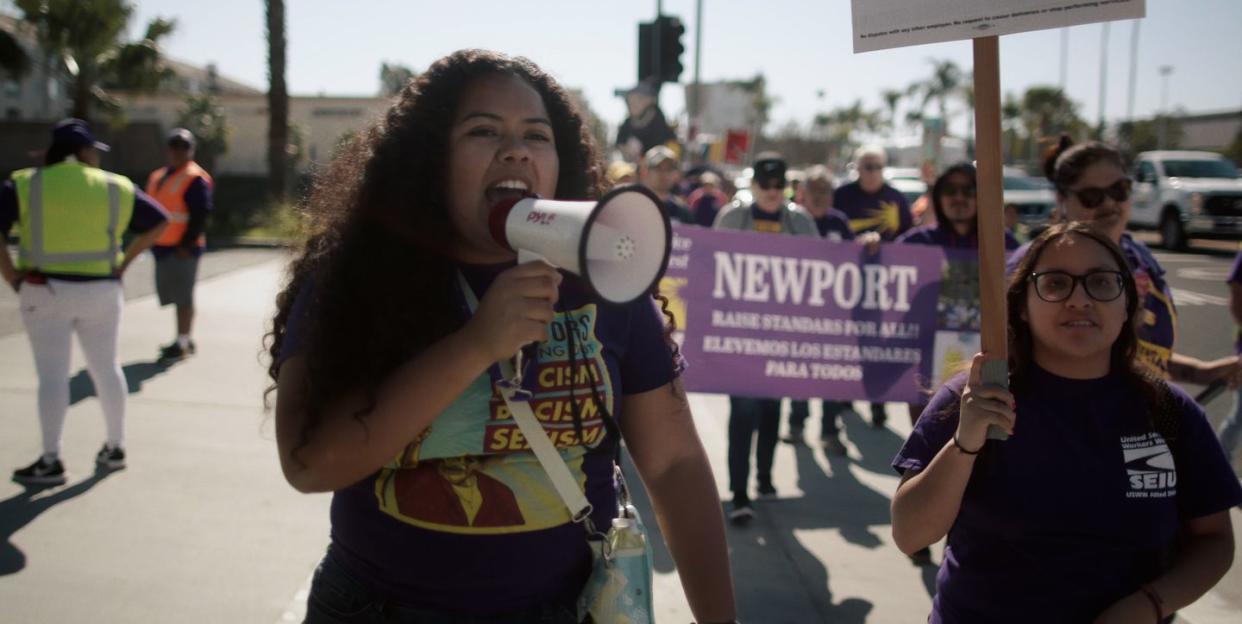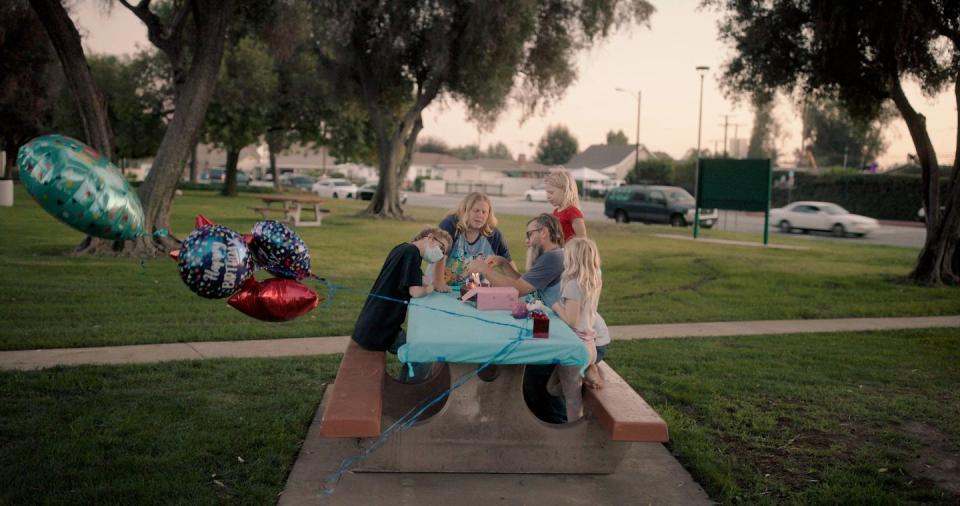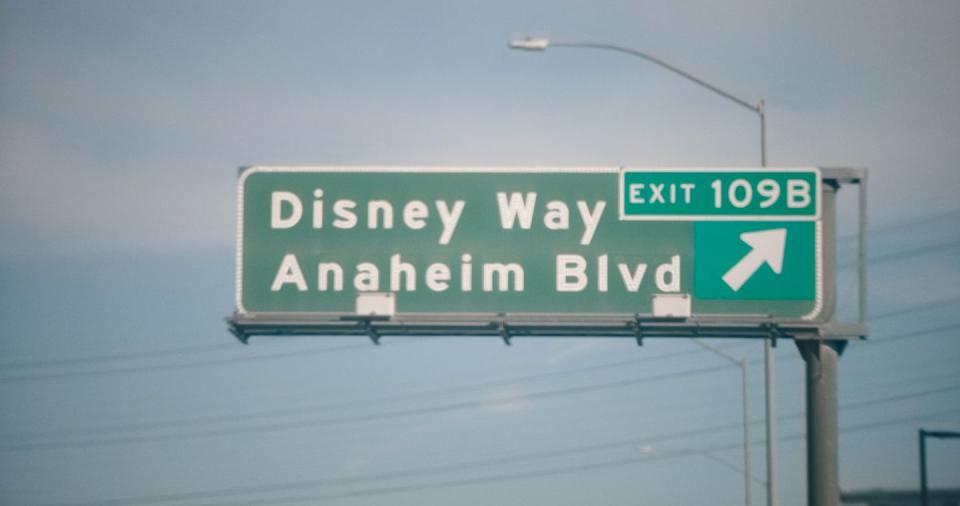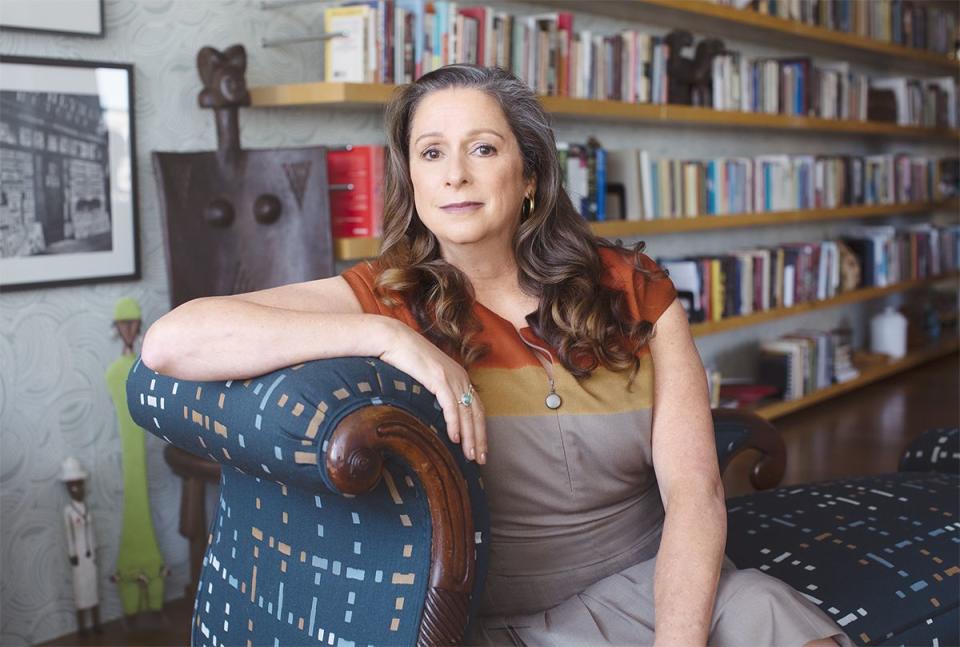How Should We Feel About The Happiest Place on Earth?

They weren’t quite sure where the story would go. Before The American Dream and Other Fairy Tales was a movie, before it was even an idea, it began as a message to the filmmaker Abigail Disney from a stranger. Well, kind of. While Disney had never met the Disneyland employee who reached out to her via social media to share his frustrations with working for the theme park, she had a personal connection to the place and the people who worked there dating back to the tenure of her grandfather, Roy Disney, who co-founded the Walt Disney Company.
The message started Disney and her co-director Kathleen Hughes on a journey that brought them to Anaheim, Calif. to meet employees of the park who felt they were being underpaid and undervalued. “My grandfather would say that these were the best people in the world,” Disney says, “and it just felt like a violation.”

The resulting documentary follows the experiences—before, during, and after the Covid-19 pandemic—of a group of Disneyland employees whose experiences highlight what Disney and Hughes see as problems not only within the company, but the American economy at large. It’s an affecting, powerful film not only because of the stories it tells, but the people who chose to tell them. Here, Disney and Hughes share their experiences making the film with T&C.
The idea behind this movie came to you when a Disneyland employee reached out. It hadn’t been something you’d previously been planning to make.
Abigail Disney: We had been spinning our wheels in between projects for a little while. I wasn’t looking for a project about this or anything else. I was just signing on to my Facebook page—which I generally don’t do anymore because I’m so mad at them—when I saw a message from a man named Ralph. He’s a lovely guy, married to a woman he met at the park, with four kids, and he said, ‘we’re having a really tough time.’ It seemed like they were being nickeled and dimed, and it felt so wrong to me given the way I remember being at the park and meeting those people when I was young. One thing led to another, and I found myself making a film.
Kathleen Hughes: We knew that there was a lot of interest in this story when Abby tweeted about the situation and the response was just incredible. The Washington Post asked her to write an Op-Ed, and it just snowballed. We understood that talking about inequality in America through the lens of the Disney Corporation was a way to get people to stop and listen.

The stories of your subjects unfold as you’re filming—their highs and lows, the arrival of the pandemic. What was your experience filming something that was happening in real time?
AD: If you’re making verité documentaries, that’s just how it is; you hope there’s a story. When Covid hit, Kathy and I were looking at each other thinking, where’s the tension? And then bam! At first, I thought Covid had ruined everything, but as it developed and the economy did what it did, it felt to me like writ large this was what was happening to workers. No one who has anything to lose was losing anything, and those with nothing to lose were being asked to bear so much.
It's surprising that so many of your subjects who still worked at the park decided to go on camera.
KH: Ralph told us that his dream was that if he could make a change at a place like Disney, he could kick off a larger chain of events. That was something he was hoping to do before we even walked in. We approached people who were reticent, but we spent a lot of time out there and at some point the people who are in the film realized that we were there to tell their stories, not to twist their realities. They learned to trust us, and we were able to tell their stories authentically.
What was the most surprising thing you learned making the movie?
AD: The [multimillion, taxpayer-funded] parking lot in Anaheim was really appalling. There were so many other awful things we could have talked about, but that really summed it all up. It was politicians not looking out for their constituents and a company willing to exploit an advantage they had, and for what? To Disney, the $60 million dollars a year it would earn—interestingly, the same amount [former CEO] Bob Iger was compensated that year—was pocket change. The voters and citizens of Anaheim are going to be shouldering this debt for years to come. It felt like nobody was arranging their lives around the proper priorities.

Was there anything you hoped to film that didn’t come to pass?
AD: I would have loved to sit down with Bob Iger and do an interview. It would have been great, but I didn’t even really try because I knew [it wouldn’t happen]. Many years ago, when my father tried to advocate for change at that company, he got himself into a lot of controversy and was in the newspapers more than he liked to be. I recognized a lot of that M.O.
Abby, your sister appears in the film supporting you during your testimony before Congress. Does a film like this make for uncomfortable family situations?
AD: I was worried about the reactions of my siblings, and it was great to get [my sister] Susan’s support in the way I did. I know not everybody in the family is pleased with me, and I really did have to think deeply about how much I wanted to create real anger at me. That’s one of the reasons I’m so committed to getting this film seen, I don’t want it to all be for nothing.
KH: Abby worried a lot about it. We wanted to tell the story of what’s going on there, but her family is her family. It’s not easy. As someone standing alongside her, I think what she’s done is very brave.

What can viewers who want to act do after seeing the film?
AD: Documentaries are funny because they are almost always about social change, but very rarely do they have simple answers. There’s a lot that needs to change on a lot of levels, but what you hope to change with a documentary is not the pieces of the kindling that get the fire going, but the fuel that ignites it. We need to think more creatively about possibilities. Once you have a billion dollars, your job isn’t to get another billion dollars. I’d love to talk in another film about what that could look like.
KH: We have to stop and think about how we’re taking care of working people. From that to the corporate boardroom, we need to better understand what’s going on and shift the value system around it.
AD: One of the reasons my heart is broken by people leaving the company is that back in the day, my grandfather’s wish was for people to be hired and then move up in the company. That question of where management comes from has a real impact on people who work hourly jobs. Not everybody wants to rise to the top, but to know that you’re valued and there’s a path for you, that’s a powerful thing.
You Might Also Like

